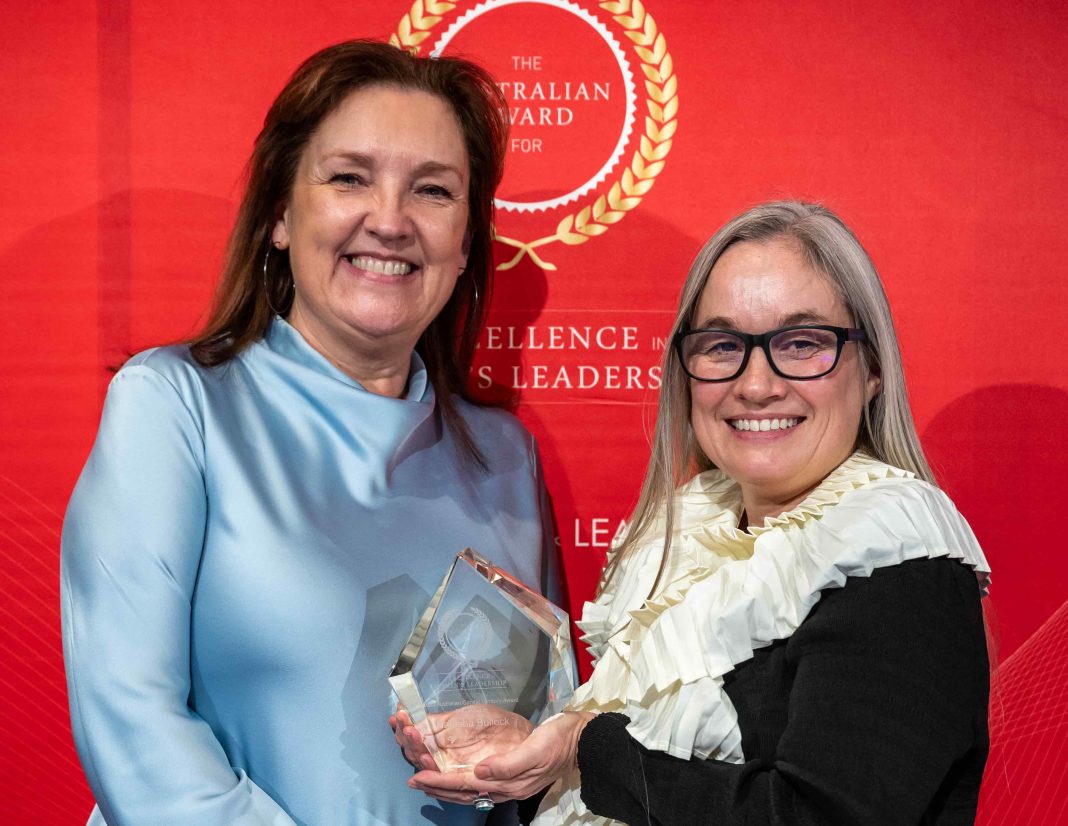For her contribution to raising the profile of women in the art world, Natasha Bullock, Assistant Director, Collection and Exhibitions at the National Gallery of Australia has recently been recognised. The award-winning curator and art expert took home the 2023 ACT Australian Awards for Excellence in Women’s Leadership in June. CW caught up with Ms Bullock to discuss gender equity, the arts and honours.
1. Congratulations on the Award for Excellence in Women’s Leadership. What does the recognition mean to you?
I am thrilled and humbled to win this award.
The arts represent how we see ourselves and our identity. It is fundamental to our sense of self. If we don’t change the stories and represent women, then young girls won’t see those examples, they won’t be taught about them at school and they won’t realise what is possible.
While I am excited to be acknowledged, this award is also for the team at the National Gallery of Australia, and for women who work in the arts. This is the first time the Australian Award for Excellence in Women in Leadership has been awarded to a woman who works in the arts.
2. Has being a leader for women been at the forefront of your practice?
As part of my work, I have been fortunate to work with some extraordinary women leaders –including Anne Flanagan, who served as the Deputy Director of the Art Gallery of New South Wales, Suhanya Raffel, who currently serves as Director of M+ in Hong Kong, Elizabeth Ann MacGregor, former Director of the Museum of Contemporary Art Australia, and Alexie Glass-Kantor, Executive Director, Artspace in Sydney.
Sometimes in difficult circumstances, these women led and paved the way forward. They were visionaries, strong and brave, but most importantly, they were compassionate and trusting. My hope is that I apply some of the lessons learnt from their examples in my current position. They demonstrate that leading can be done with care and humility.
A move to Canberra with my young family four years ago to assume a leadership position and contribute to the strategic vision of the National Gallery was both exciting and terrifying for me. I have made mistakes and learnt much. The work I have done providing opportunities to the next generation has always been a part of my purpose to give back.
3. The Know My Name initiative is a great step toward gender equity in the art space. What more do you think could be done?
Through Know My Name, the National Gallery has raised the profile of women artists on numerous fronts. We are measuring its success by implementing a Gender Equity Action Plan. To date, we have achieved 88 per cent of our Year 1 actions, which includes equity in artistic programming, publishing, and collection development. There has been a real, tangible change in how we think about art and its representation.
There is still much work to be done, and we must remain vigilant.
4. What does the future of the NGA look like?
With the recent launch of the National Cultural Policy, Revive, and the announcement of stable funding for the National Gallery of Australia, the future is bright and more hopeful.
Over summer, we will be presenting a major exhibition of the late, great senior Anmatyerre woman, artist Emily Kame Kngwarreye. This will be a show not to miss! Curated by Australia’s leading curator of Aboriginal and Torres Strait Islander art, Hetti Perkins, and the National Gallery’s very own curator of special projects, Kelli Cole, these curators have spent time on country and with community to develop this exhibition. It promises to be spectacular and I, for one, cannot wait to experience it!
5. How do you think other institutions and organisations could implement gender equity plans?
To design the National Gallery of Australia’s Gender Equity Action Plan we collaborated with staff, and we hosted workshops with arts leaders across the country. Our Plan is a template, a blueprint, that other organisations could adapt to their circumstances and communities.
We are slowly and incrementally transforming the National Gallery from the inside out and we are hoping that others will join us on this journey.
6. Do you have any advice for potential female leaders?
My advice would be to listen deeply, hold ideas lightly and believe in yourself, and most importantly, believe in others. Demonstrate trust and be curious.
As the great former Director of the National Gallery of Australia, Betty Churcher, said, ‘The story of my success, and I make no bones about this, has been my ability to recognise strength and talent in other people. My reputation, and I do not blush about this, is based on theirs. Get special people together and you’ve got dynamite.’
See the Know My Name initiative and other works at the National Gallery of Australia; nga.gov.au
Canberra Daily is keen to hear from you about a story idea in the Canberra and surrounding region. Click here to submit a news tip.



